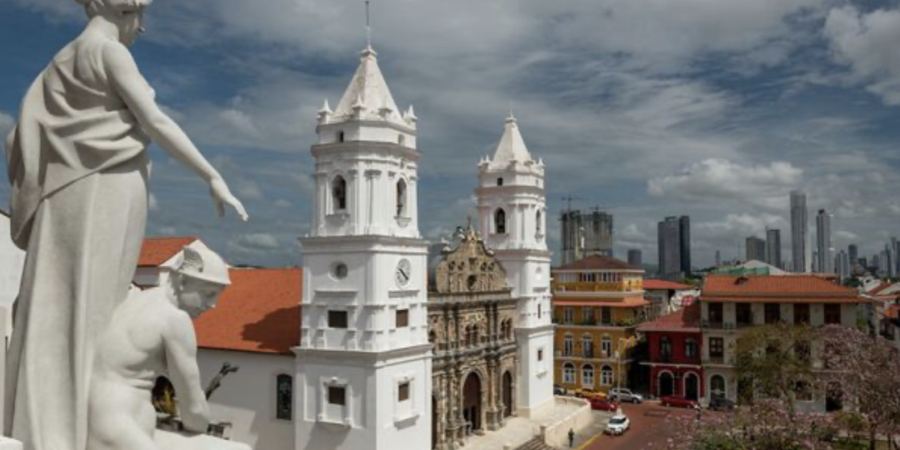With the unanimous approval in the first debate, by the Commission of Education, Culture and Sports of the National Assembly, of the draft law that declares the Transistmic Colonial Route of Panama cultural heritage, the National Government complies with what was requested by the World Heritage Committee on the legal protection of this set of historical constructions that unite the Pacific with the Panamanian Caribbean.
This advance will allow the registration of the Transistmic Colonial Route of Panama, which includes the Monumental Complex of Portobelo and San Lorenzo, the Monumental Complex of the Old Town, the Archaeological Site of Old Panama, the Royal Road, the Camino de Cruces and the ruins of the Chapel of the Palangana or Chapel of Cárdenas, in the World Heritage List, management advanced by the National Government through the Ministry of Foreign Affairs.
The director of International Cooperation of the Ministry of Foreign Affairs, archaeologist Carlos Fitzgerald, reported that this approval is progressing in the first four substantive points recommended by the UNESCO World Heritage Committee, for the inclusion of the Transistmic Colonial Route, while also making progress is being made with the Panama Tourism Authority in the incorporation of the Route in the Panama Tourism Master Plan.
The document approved by the Committee on Education, Culture and Sports of the National Assembly is the result of the work in consensus carried out by the Ministries of Foreign Affairs and Culture, on the initiative of Deputy José Pérez Barboni, initial proponent of the draft.
The legal instrument also establishes the protection of the route for which it creates a buffer area for the Camino Real, the Camino de Cruces and the ruins of the Chapel of the Palangana, which must be kept free of constructions and alterations to the natural and cultural environment, except those necessary for the visit, interpretation, enhancement and study of the sites.
Once the initiative becomes a law of the Republic, Panama will support the inclusion of the Transistmic Colonial Route before the corresponding authorities, in order to receive the approval of UNESCO, for its inclusion in the World Heritage List. This recognition as a cultural and tourist destination will have a positive impact on the country, both culturally and economically.
